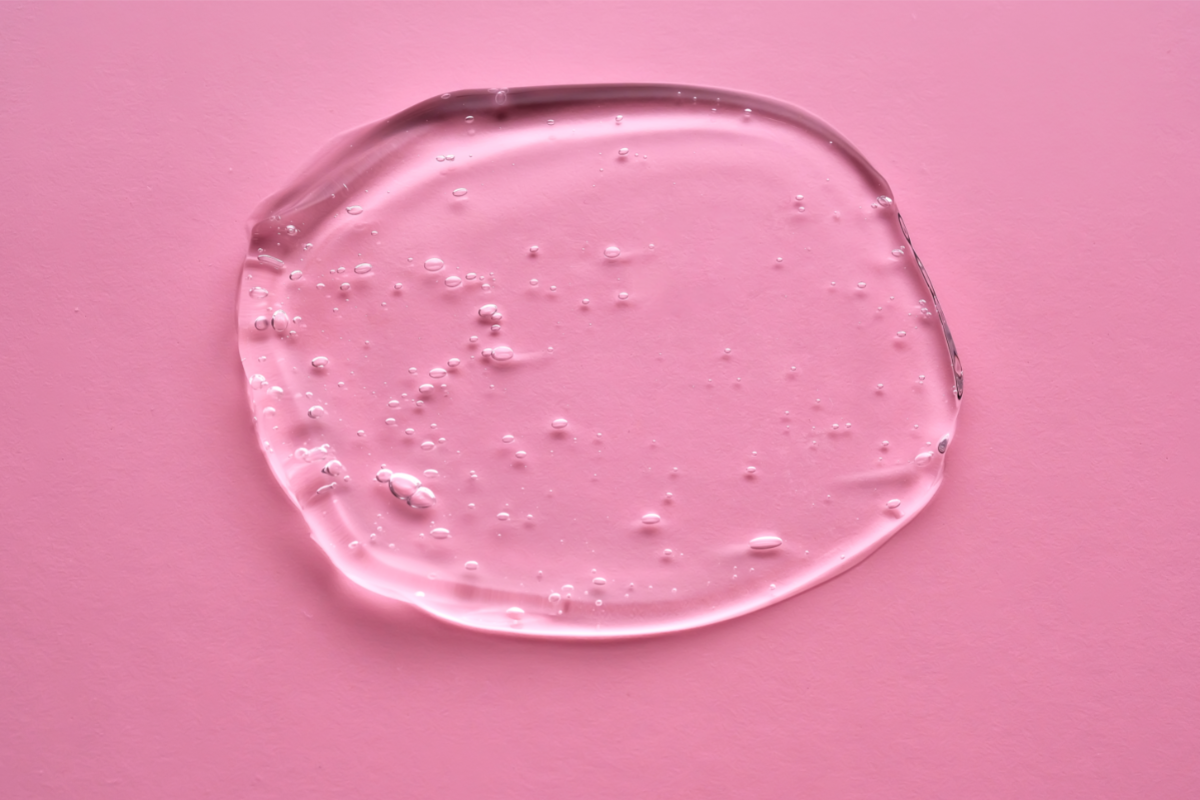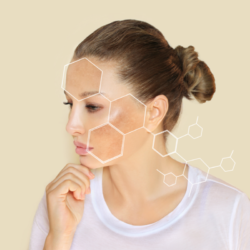Niacinamide is a key ingredient for the health of your skin. It’s a form of vitamin B3 that has many benefits for the skin, such as regulating sebum production, improving skin texture and tone, reducing the appearance of dark spots and wrinkles, and strengthening the epidermis. If you’re looking for an effective ingredient to beautify your skin, Niacinamide is an option to consider. In this article, we’ll take an in-depth look at the benefits of Niacinamide for the skin, the products that contain it and how this ingredient can help you achieve healthier, more beautiful skin.
What’s more, this vitamin doesn’t just treat superficial symptoms, it goes deeper, rebalancing essential skin functions. In a world where beauty goes hand in hand with health, Niacinamide is proving to be an invaluable ally.
Why Niacinamide: This miracle ingredient has more than just a cosmetic role. It embodies a holistic approach to skin health, intervening in key biological processes such as lipid and protein synthesis, essential for maintaining the integrity of the skin barrier. Its versatility makes it an ideal choice for many skin problems.
What is niacinamide?
Niacinamide is a form of vitamin B3. It is a common ingredient in skin care products and dietary supplements, as it has several benefits for the skin.
Niacinamide can help regulate sebum production, which can help prevent acne and reduce shine. It can also help improve skin texture and tone, as well as reducing the appearance of dark spots and wrinkles. In addition to its benefits for the skin, it can also help strengthen the skin barrier. This can help prevent water loss and keep skin hydrated. It can also help reduce redness and soothe inflamed skin.
What are the chemical properties of niacinamide?
Niacinamide, also known as nicotinamide, is a derivative of niacin or vitamin B3. This molecule is highly stable, a key factor that makes it particularly suitable for cosmetic formulations. Its stability means it can withstand changes in pH and heat, preventing degradation and loss of efficacy during storage or application to the skin.
Its solubility in water is another important feature. This property makes it easy to incorporate into a wide variety of skincare products, such as serums, lotions and creams. Water solubility also allows niacinamide to penetrate effectively into the upper layers of the epidermis. This optimal absorption is essential for it to deliver its beneficial effects, such as improving the skin barrier, hydration, and anti-inflammatory and antioxidant action.
In addition to its stability and solubility, niacinamide is renowned for its gentleness, making it suitable for sensitive and reactive skin. Unlike other powerful active ingredients that can sometimes irritate, niacinamide works without causing redness or discomfort, making it suitable for everyday use and for people with different skin types.
Its ability to work in synergy with other ingredients is also an advantage. Niacinamide can be combined with active ingredients such as hyaluronic acid for hydration, retinoids for the treatment of acne and the signs of ageing, or ascorbic acid (vitamin C) for enhanced antioxidant action. This versatility makes it an invaluable ingredient in skin care.
What are the benefits of Niacinamide?
This table shows the wide range of applications for niacinamide in the treatment of various skin conditions, highlighting its ability to respond effectively to a wide range of skin problems.
| Virtues of Niacinamide | Applications for Skin Problems |
|---|---|
| Regulation of sebum secretion | Treatment of acne, reducing the oily appearance of the skin, tightening pores |
| Improving skin texture and tone | Unifying the complexion, revitalising dull skin, reducing the signs of ageing |
| Reduction in brown spots and hyperpigmentation | Melasma reduction, fading of age spots, correction of post-acne scars |
| Reduction of wrinkles and fine lines | Prevents skin ageing, smoothes fine lines around the eyes and mouth |
| Reinforcement of the Cutaneous Barrier | Cares for dry skin, treats dermatitis, soothes sensitive skin |
| Skin hydration | Rehydrates dehydrated skin, relieves feelings of tightness, prevents desquamation |
| Redness and Inflammation Reduction | Soothes the symptoms of rosacea, treats eczema, reduces post-acne inflammation |
| Antioxidant properties | Protection against ageing due to environmental stress, prevention of UV damage |
| Improves cellular energy metabolism | Revitalises tired skin, improves skin radiance |
| Treatment of Inflammatory Skin Conditions | Acne management, rosacea relief, dermatitis care |
| Photoprotective effects | Prevents the harmful effects of the sun, combats skin ageing caused by UV rays |
Effects of Niacinamide on skin metabolism
Niacinamide, the active form of vitamin B3, is a cosmetic ingredient with remarkable capabilities, particularly in the field of skin metabolism. As a precursor of the coenzymes NAD (nicotinamide adenine dinucleotide) and NADH (its reduced form), niacinamide plays an essential role in the biochemical processes that fuel cellular vitality.
Role in DNA synthesis and repair
At the heart of every skin cell, NAD and NADH are involved in key reactions, including DNA synthesis and repair. These processes are vital for maintaining the integrity and health of cells in the face of environmental stresses such as UV rays and pollution. By increasing the levels of these coenzymes, niacinamide helps to preserve the skin’s youthful appearance and resistance to these stresses.
Impact on cellular energy production
NAD is also a major player in cellular energy production. It is involved in the reactions of the mitochondrial respiratory chain, which are essential for converting nutrients into ATP, the cell’s energy currency. Skin that is well supplied with energy regenerates better and looks healthier and more radiant.
Anti-oxidant and anti-inflammatory effects
In addition to its energetic functions, niacinamide has antioxidant and anti-inflammatory properties. It helps combat oxidative stress, a major cause of skin ageing, and soothes inflammation, improving skin texture and tone.
Contribution to overall skin health
By promoting efficient cell metabolism, niacinamide makes a significant contribution to overall skin health. It strengthens the skin barrier, improves hydration, reduces the appearance of imperfections and provides a more even, radiant complexion.
Niacinamide in the treatment of Discoid Lupus Erythematosus :
In the world of skin care, the discovery of new effective treatments is always a landmark event. This is the context of the groundbreaking study conducted by Ahmed H Nouh and his team, exploring the efficacy of niacinamide, a form of vitamin B3, in the treatment of discoid lupus erythematosus (SLE). (7)
The problem of Discoid Lupus Erythematosus
SLE, a chronic skin condition and the most common form of lupus erythematosus, represents a constant challenge in the field of dermatology. Existing treatments are often expensive and not easily accessible, particularly in view of the COVID-19 pandemic, leaving a crying need for more affordable and effective alternatives.
The innovative approach of niacinamide
Niacinamide, also known as nicotinamide, stands out for its multiple virtues, arousing the interest of researchers as a potential therapy for the skin lesions associated with lupus.
Details and results of the study
In this prospective, randomised, double-blind study, 60 subjects with SLE were treated with topical applications of 2% and 4% niacinamide. The results were promising, to say the least: not only did niacinamide prove to be an effective adjuvant to conventional SLE treatments, but it also delivered significant cosmetic improvements with minimal side-effects. In particular, the 4% concentration showed superior efficacy, despite a slight increase in cases of irritation.
How should niacinamide be used?
Niacinamide can be used in a number of ways to achieve the benefits for the skin:
- Skin care products. You can find many skin care products that contain Niacinamide, such as serums, eye creams, moisturisers, masks and night products. Simply apply them to your clean, dry skin, following the manufacturer’s instructions.
- Add it to your skincareroutine . You can use a serum concentrated in Niacinamide, for example. Simply apply it to your skin before applying your usual moisturiser.
- Combine with other ingredients. Niacinamide can also be combined with other ingredients to boost its effectiveness. For example, it can be combined with hyaluronic acid to boost skin hydration.
Products containing Niacinamide can take time to produce visible results. It is therefore essential to continue using them consistently to achieve the best results.
Can glycolic acid and niacinamide be mixed?
Yes, you can mix glycolic acid and niacinamide! In fact, it can even be beneficial as these two ingredients have complementary properties for the skin. In fact, glycolic acid is an alpha hydroxy acid (AHA) that helps to exfoliate the skin and reduce dark spots and fine lines. Niacinamide helps improve skin texture and tone. It also helps to reduce redness and increase hydration. However, it’s important to take certain precautions when using these ingredients together. It’s best to start by using each of them separately to make sure your skin reacts well to each one. Finally, it’s also important to use products with the right concentrations to avoid irritation or excessive skin dryness.
Which ingredients should niacinamide not be mixed with?
When it comes to looking after your skin, it’s important to learn how to create your own skincare routine, based on your individual needs. Adding niacinamide, a very stable ingredient, can help strengthen the skin barrier, which can improve tolerance to other active ingredients, such as vitamin C or retinol. In fact, it can be combined with other active ingredients. As long as it is well tolerated and the active ingredient to which it is added is also well tolerated! This combination of active ingredients can help improve the effectiveness of your skincare routine and meet individual needs. Ultimately, learning to create your own skincare routine can help to improve the health and appearance of your skin in a personalised and effective way.
What are the possible side effects of using B3?
Niacinamide, also known as vitamin B3, is generally considered safe for most people when taken orally or applied topically to the skin. However, some people may experience side effects. Here are some possible side effects associated with the use of niacinamide:
- Redness and flushing of the skin: One of the most common side effects of niacinamide is redness and flushing of the skin, also known as a “flush”. This may cause itching and mild discomfort.
- Skin irritation: In some people, the application of niacinamide may cause skin irritation, redness, itching or tingling. This may be due to individual sensitivity or to too high a concentration of niacinamide in the product.
- Dryness and flaking of the skin: Niacinamide can sometimes cause dryness and flaking of the skin, especially if used in combination with other active ingredients or if the skin is sensitive.
- Headaches: Although rare, some niacinamide users have reported headaches after taking oral supplements or applying niacinamide-containing products to the skin.
- Gastrointestinal disorders: Taking niacinamide orally may cause gastrointestinal disorders in some people, such as nausea, vomiting, abdominal pain or diarrhoea.
- Allergic reactions: Although rare, some people may develop an allergic reaction to niacinamide, manifested by skin rashes, hives, breathing difficulties or swelling of the face, lips, tongue or throat.
FAQs
- Is niacinamide suitable for all skin types?
In fact, it is suitable for all skin types. However, it’s important to start with a low concentration to avoid any adverse reactions.
- Is niacinamide safe for pregnant or breast-feeding women?
Niacinamide is considered safe for pregnant or breast-feeding women, but it is always advisable to consult a doctor before using skin care products containing niacinamide.
- Can niacinamide be used with skin care products containing salicylic acid?
Yes, niacinamide can be used with skin care products containing salicylic acid, but it is recommended to space out the use of these products to avoid skin irritation.
- Can niacinamide help reduce the appearance of pores?
Yes, it can help reduce the appearance of pores. At the same time, it regulates sebum production and strengthens the skin barrier.
- Is niacinamide effective in lightening brown spots?
Yes, niacinamide is effective in lightening brown spots by inhibiting melanin production in the skin. However, it is important to use sun protection to prevent the formation of new brown spots.
@soin.et.nature ✨️Le/La niacinamide est une forme de vitamine B3 ✨️Essentielle à notre métabolisme, elle présente de nombreux bienfaits pour la peau ? ✨️Découvrez tous les produits à base de niacinamide sur notre site, lien dans la bio ?⭐️#produitsdebeautés #produits #routinepeau #astucepeau #conseilgratuit #viral #fyp #foryou #peauseche #peausaine #eczema #frenchpharmacie #frenchpharmacy #antiaging #antiage #rides #botox #masquedegrossesse #taches #melasma #rosacee #boutons #acne #routineacne #routinerosacee #couperose #bienvieillir #cicatrices #peausensible #esthetique #ceramides
References:
- https://pubmed.ncbi.nlm.nih.gov/36683259/
- https://pubmed.ncbi.nlm.nih.gov/16029679/
- https://pubmed.ncbi.nlm.nih.gov/24993939/
- https://pubmed.ncbi.nlm.nih.gov/34844552/
- https://pubmed.ncbi.nlm.nih.gov/12100180/
- https://pubmed.ncbi.nlm.nih.gov/16596767/
- https://pubmed.ncbi.nlm.nih.gov/36683259/





